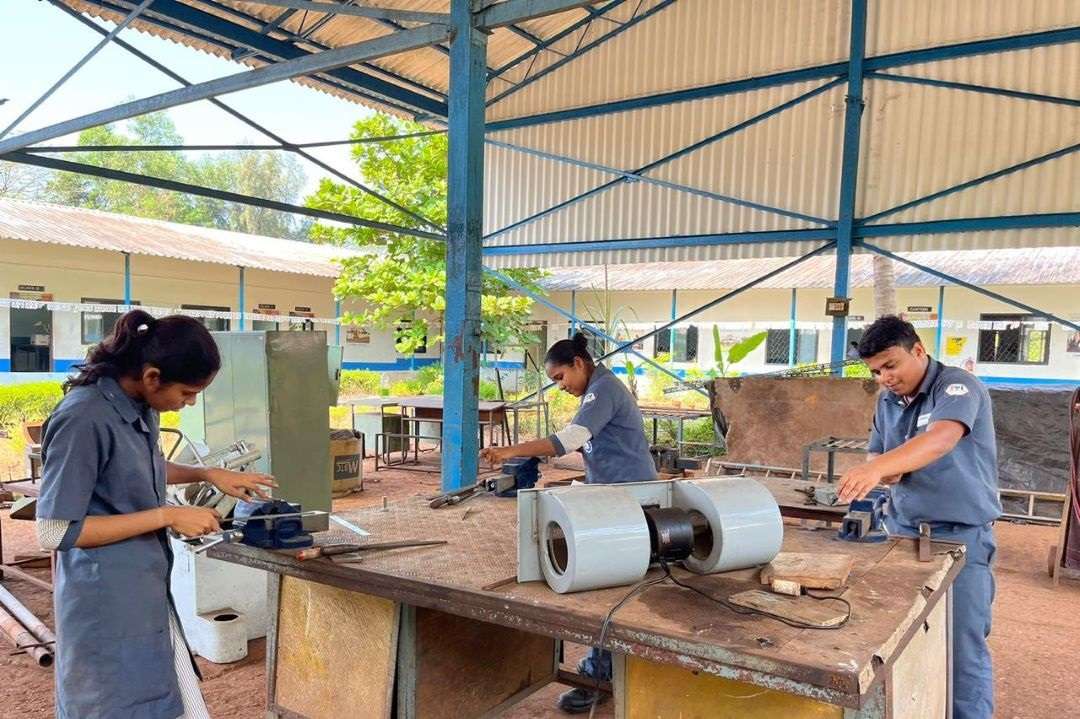As India advances toward its goal of becoming a $7 trillion economy by 2030, the manufacturing sector remains central to this growth trajectory. To support this momentum, the National Policy on Skills Development aims to equip over 500 million individuals with relevant competencies. Recent findings from the Wheebox ETS India Skills Report 2025, in collaboration with CII, Taggd, AICTE, and AIU, reveal that employability among graduates has risen to 54.81% in 2025, a significant increase from 51.25% in the previous year.
With nearly two-thirds of the population under the age of 35, the age bracket of 22–25 is reported to have the highest employability potential. Addressing this opportunity, Vedanta Sesa Goa has been at the forefront with a range of skill-building programs across sectors such as technology, digital tools, sports, and entrepreneurship—positively impacting over 1 lakh youth since 2018.
One of the cornerstones of this effort is the Sesa Technical School (STS) in Goa. Established in 1994, STS has maintained a near-perfect placement rate over the past 31 years, preparing more than 2,000 technically proficient individuals for the workforce. In a bid to further inclusivity, STS has introduced specialized training for women, such as the Computer Operator & Programming Assistant (COPA) course, alongside scholarships to promote greater female participation.
The India Skills Report 2025 also notes that 50% of students at the secondary and tertiary levels stand to gain from vocational education. In response, STS has introduced short-term vocational programs expected to train over 1,000 individuals within three years.
Navin Jaju, CEO of Sesa Goa, remarked, “A capable and skilled workforce is crucial for India’s progress. Our focus remains on delivering meaningful training in technical, digital, sports, and vocational domains. Through institutions like STS, the Sesa Football Academy, and our network of computer and tailoring centers, we’ve reached more than 1 lakh youth since 2018.”
Pradip Sarmokadam, Member Secretary of the Goa State Biodiversity Board, praised these initiatives during a recent visit, stating, “The work done by STS and SFA has truly shaped the future of youth in the mining belt. Upskilling is not just about employment—it’s about building confidence.”
According to Teuila Hampson, Chief People Officer at LinkedIn, by 2030, 64% of job requirements in India will be different from today, driven by the need for innovation and digital fluency. To address this shift, Sesa Goa has launched 8 Vedanta Computer Centres and 18 Computer Labs since 2018, enabling over 80,000 students to access digital training. These efforts directly support the World Youth Skills Day 2025 theme: “Youth Skills for the Digital Era.”
Sesa Goa’s skilling strategy also includes sports and entrepreneurship. The Sesa Football Academy has produced over 230 graduates, with 11 representing India on international platforms. The Vedanta Women’s League has provided opportunities to more than 1,400 women, helping them pursue football professionally.
The company’s Project Jeevika focuses on developing entrepreneurial capabilities and provides placement-linked training to youth across Goa and Karnataka. By fostering a broad-based skill development ecosystem—spanning technical, digital, vocational, and creative sectors—Sesa Goa is contributing to a future-ready workforce aligned with India’s development ambitions.
Vedanta Limited, a key player in the global resources sector, operates extensively across India, South Africa, and Namibia in industries including oil and gas, zinc, lead, silver, copper, iron ore, steel, and aluminium. Through its social impact arm, the Anil Agarwal Foundation, Vedanta has committed ₹5,000 crore over five years for initiatives focused on nutrition, education, women’s empowerment, healthcare, and grassroots sports.
The Sesa Goa Iron Ore business, part of Vedanta Limited, began operations in 1954. Now a major contributor to India’s iron ore production, the business has diversified into pig iron and metallurgical coke manufacturing and has implemented sustainable technologies for clean energy through its waste heat recovery power plants. Vedanta remains committed to responsible growth, with sustainability, governance, and community development at the core of its mission.








